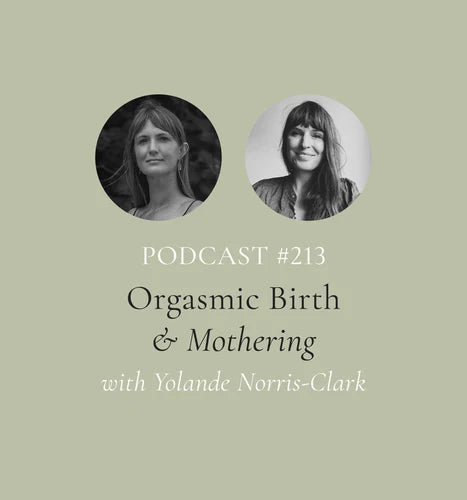What are medicinal mushrooms?
Medicinal mushrooms are among the most effective natural remedies for boosting immunity, reducing stress, and promoting holistic health. These adaptogenic mushrooms are prized for their ability to balance the body’s Qi (vital energy) and are a cornerstone of Taoist herbalism.
Some of the most popular medicinal mushrooms include:
- Reishi: Known as the ‘mushroom of immortality’.
- Chaga: A powerful antioxidant with immunity-boosting properties.
- Lion’s Mane: Famous for enhancing cognitive function and memory.
- Cordyceps: Supports energy, stamina, and athletic performance.
Whether you want to improve mental clarity, manage stress, or enhance your overall well-being, this guide will help you choose the best medicinal mushroom products.
Why choose medicinal mushrooms?
Medicinal mushrooms are adaptogens, meaning they help the body adapt to stress and maintain balance. Key benefits include:
- Immune support: Strengthens the body’s defenses.
- Cognitive enhancement: Improves focus, memory, and brain health.
- Energy and vitality: Boosts stamina and physical endurance.
- Digestive health: Supports gut health and nutrient absorption.
- Skin health: Promotes hydration and elasticity.
Factors to consider when buying medicinal mushrooms
When choosing medicinal mushroom supplements, consider these critical factors to ensure quality and effectiveness:
1. Sourcing: organic vs. Dì Dào
Organic mushrooms
- Certified organic: Free from synthetic pesticides and fertilisers.
- Eco-friendly: Organic farming practices are better for the environment.
- Nutrient content: Organic certification doesn’t always guarantee optimal potency.
Dì Dào Mushrooms
Dì Dào refers to growing herbs in their natural habitat, a traditional Chinese farming method.
- Higher potency: Grown in native conditions for superior quality.
- Sustainability: Supports small-scale farmers and local ecosystems.
- Traditional integrity: Reflects centuries-old cultivation practices.
2. Quality and purity
High-quality medicinal mushrooms undergo rigorous testing to ensure safety and efficacy:
- Contaminant-free: Tested for heavy metals, pesticides, and microbes.
- Fingerprint chromatography: Confirms the mushroom species.
- Transparency: Look for brands that provide a Certificate of Analysis (CoA).
3. Growth medium: wood vs. grain-grown mushrooms
- Wood-grown mushrooms: Mimic natural conditions, leading to higher nutrient density and bioactive compounds.
- Grain-Grown mushrooms: Often contain higher starch levels, reducing medicinal potency.
For a deeper dive, read our blog on Wood vs. Grain-Grown Medicinal Mushrooms.
4. Fruiting body vs. mycelium
- Fruiting Body: Contains most of the medicinal compounds like beta-glucans and triterpenoids.
- Mycelium: Often grown on grain, resulting in fewer active ingredients.
Fruiting body-based supplements are generally more potent and have a long history of traditional use. Learn more in our blog, Fruiting Body vs. Mycelium.
Choosing the right form and extraction method
Medicinal mushrooms are available in powders, capsules, and liquid extracts. Each form offers unique benefits:
- Powder: Ideal for mixing into teas, smoothies, or recipes.
- Capsules: Convenient for daily supplementation.
- Liquid Extracts: Highly concentrated and bioavailable.
The dual-extraction method is preferred as it captures both water-soluble and fat-soluble compounds, ensuring the full spectrum of medicinal properties.
Dosage and usage tips
How to take medicinal mushrooms
-
Start slow: Begin with a small dose and increase gradually.
-
Be Consistent: Daily use maximises benefits.
-
Track Results: Monitor changes in energy, sleep, and stress levels.
-
Consult Experts: If you have a health condition, seek guidance from a practitioner.
Top medicinal mushrooms for your needs
Here’s a quick guide to the best medicinal mushrooms and their benefits:
Lion's Mane - Focus, memory, cognition, nerve and digestive health, a healthy stress response, immunity, energy and vitality.
Chaga - Digestion, candida, immunity, antioxidant defences, blood sugar regulation, energy and vitality.
Reishi - Sleep, stress and emotional health, allergies, hormonal health, immunity, energy and vitality.
Tremella - Skin hydration, radiance and elasticity, Lung and digestive health, antioxidant defences.
Cordyceps - Physical endurance and performance, energy, Lung & Kidney health and immunity.
Mason's Mushrooms & Mushroom M8 - Immunity, healthy stress response, hormonal health, digestive function, energy and vitality and antioxidant defences.
If you feel that you need a little extra help choosing the mushroom for you, give our wonderful Customer Service team a call on 1300 769 500 or email them at team@superfeast.com.au, they are always up for a chat!
FAQ
Are medicinal mushrooms safe to take while pregnant or breastfeeding?
Reishi mushroom has the most empirical use during pregnancy, through the lens of Traditional Chinese Medicine. Therefore we feel confident recommending this mushroom. In regards to breastfeeding, generally, all medicinal mushrooms are regarded as safe. We always recommend working with a practitioner if you would like further information and support that is relative to your own needs.
Can I take medicinal mushrooms if I am taking prescription medications?
For anyone taking prescription medication, we recommend consulting with your prescribing doctor or practitioner before ingesting tonic herbs or mushrooms. There is the possibility that our products will be contraindicated or even harmful, and we are unable to be across all the available pharmaceuticals and their potential interactions. Please also consider your unique biochemistry and sensitivity before adding herbs to a pharmaceutical regime.
Can I combine/mix my mushrooms?
Medicinal mushrooms work in synergy with one another and were traditionally formulated to carry a certain intention and energy within the body. In this regard, they are well suited to be taken in combinations aligned to your intention and needs.
Learn More!
We have only scratched the surface, so if you want to learn more then check out some more articles below!
SuperFeast Blog
Wood vs. Grain Grown Medicinal Mushrooms
Why We Don't Test Our Herbs For Active Constituents
Dì Dào (地道); Why The Water We Use Is Consciously Chosen
What Are Beta-Glucans & How Do They Activate The Immune System?
Everything You Need To Know About Mason’s Mushrooms
Did you know we also have a SuperFeast Podcast? Check it out here!




